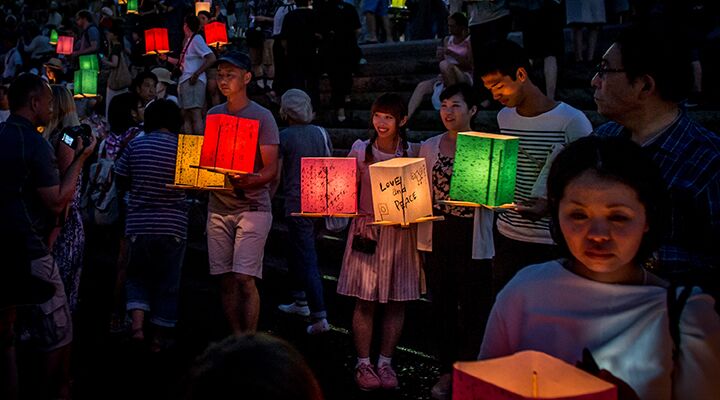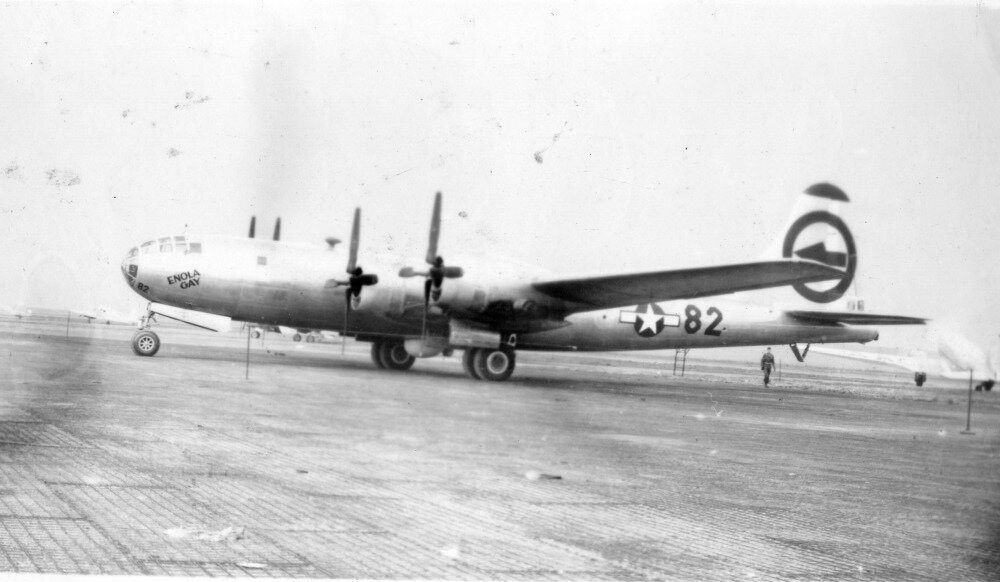
70th Anniversary of Hiroshima
Thursday marked the 70th anniversary of the bombing of Hiroshima—the first time an atomic bomb was used in war. It was the first glimpse of the destructive power and terrible consequences of using these new weapons. It was a turning point in the world. The course of humanity took a precarious turn toward oblivion.
Many articles are being published about this anniversary. Many focus on determining whether the American use of the weapon was moral. Others focus on the suffering of the victims, and others reflect on the legacy of the nuclear age and whether the reward has outweighed the risk. United States Secretary of State John Kerry used this anniversary to justify the Iran nuclear deal. Many call for universal nuclear disarmament.
However, there is a far greater lesson to consider. Hiroshima was just a small prelude, a warning to world leaders of the future horrors of nuclear war. Dropping the bomb on Hiroshima probably prevented nuclear weapons being used in other wars, since it showed the destruction mankind is capable of. If the bomb had not been dropped in 1945, it likely would have been used later under much more dangerous circumstances. Several times mankind has come close to using these weapons again, but each time this calamity has been avoided.
But what if nuclear weapons were used today?
Let’s think about the current reality. There are nine nations who now have nuclear weapons: the United States, Russia, United Kingdom, France, Pakistan, India, China, North Korea and Israel. Some of these nations harbor great animosity toward each other; some are being subverted by terrorists; and one is a rogue state ruled by a lunatic. Many of these nuclear weapons are in unstable, dangerous situations.

Enola Gay was the first ever airplane to drop an atomic bomb.
Even more dangerous is the current trend of nuclear proliferation. Iran is at the forefront of nations seeking nuclear weapons. The Iran nuclear deal struck last month is a bad attempt to prevent it from acquiring nuclear arms. This regime is led by a religious leader who believes nuclear armageddon will bring forth their “messiah.” In other words, it is a nation that wants nuclear war! What is more, Iran is the world leader in sponsoring terrorism.
Knowing the suffering of the people of Hiroshima, shouldn’t we do more to stop the spread of nuclear weapons?
Nuclear proliferation does not stop there. Because of the nuclear deal, Saudi Arabia now wants nuclear weapons to strategically match Iran. Japan, the only nation to be attacked by atomic weapons, may seek to acquire nuclear weapons to counter the aggression of China. How long until the nations of Europe demand their own nuclear weapons because of the impotency of nato? What if a terrorist organization were to obtain a nuclear weapon?
We are seeing these weapons, now in existence for 70 years, passing from the control of the rational to the irrational. In the next major world war, these weapons will not be relied upon as an option of last resort—to deliver the knockout punch—but rather as the preemptive strike. World War ii ended with two atomic bombs—World War iii will see the use of many nuclear weapons.
Experts estimate that there are nearly 16,000 nuclear weapons in the world today. These range from strategic weapons (those used to gain a strategic long-term advantage) to tactical nuclear weapons (those used to gain advantage on a battlefield or in a specific situation). Tactical nuclear weapons can be scaled in their detonation, making them several times larger than Hiroshima or the size of a large conventional explosion. Other nuclear weapons are “mini-nukes,” also known as nuclear bunker busters, which burrow into the ground and detonate to eliminate underground infrastructure. There are also hydrogen bombs, which create minimal radiation effects afterward. Finally, there are neutron bombs, which upon detonation release neutrons that pass through solid material but destroy biological material. What is more, these weapons do not have to be dropped from a B-52 bomber but can be released from an intercontinental ballistic missile to any target in the world in minutes.
In the age of American retreat, who can properly prevent nuclear weapons being used? If men like Hitler were to rise to leadership today, hungry for power and conquest, do you think they would hesitate to use these weapons if they had the chance? History and human nature tell us that mankind cannot stop the next calamity from happening. As Jesus Christ said in Matthew 24:21-22:
For then shall be great tribulation, such as was not since the beginning of the world to this time, no, nor ever shall be. And except those days should be shortened, there should no flesh be saved [alive]: but for the elect’s sake those days shall be shortened.
Unless Jesus Christ returns, there would not be a human life left! Mankind would achieve cosmocide if not for a merciful and loving God. This anniversary should remind us that even though war is inevitable, so is the Second Coming of Jesus Christ.
Reflecting on what happened 70 years ago and the events that have transpired since is a sober reminder of what is coming. However, as Jesus Christ promised, He will return to stop man’s self-destruction before it is too late. The prospect of nuclear war is terrifying, but just beyond the coming nuclear winter is an eternal dawn.
To know more about the significance of this anniversary, listen to Stephen Flurry’s August 6 Trumpet Daily Radio Show “Hiroshima 70 Years On—Will the Unthinkable Happen Again?,” and read Brad Macdonald’s article “Fire From the Sky.”
